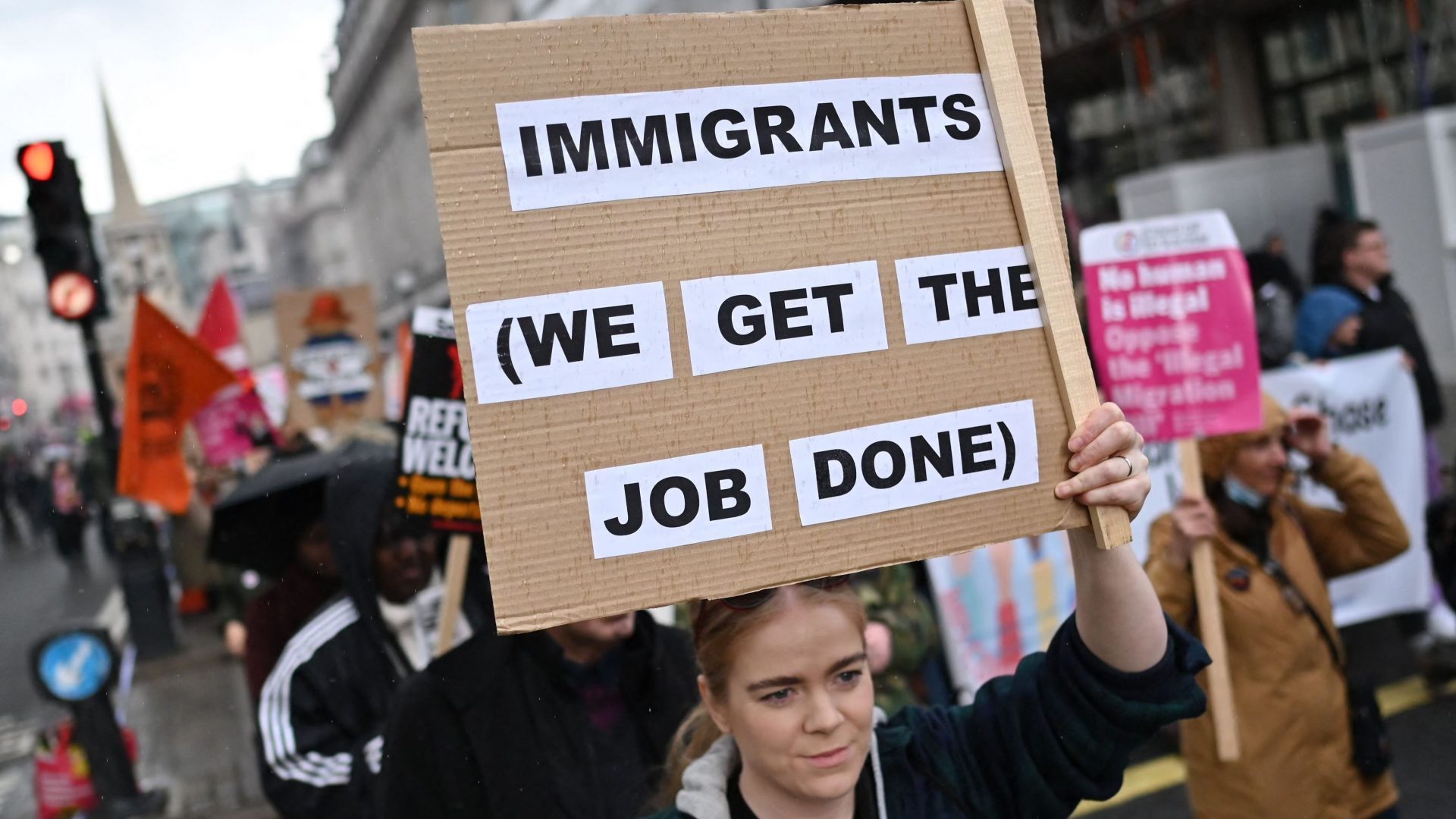There are many different reasons why people do not want Rishi Sunak to be Britain’s prime minister. However, one that does not feature prominently in the myriad of objections to his fitness to lead the country is the fact that Sunak is of Indian descent and a Hindu.
The UK may not yet be a perfect example of a multicultural society, totally at ease with its varied population, but it is not hugely racist. A majority of people are relaxed, if not overwhelmingly happy, about the mix of ethnic origins now represented in most regions of the country and most walks of life.
The exceptions to that have been much in evidence of late and it has been a far from edifying sight. Apart from the repurposed football hooligans and supporters of Tommy Robinson and his English Defence League, there will also be other people who, while not wanting to align themselves with the demonstrators, do feel uncomfortable about how their communities have evolved. But much of the UK remains tolerant of a population that long ago stopped conforming to a white Anglo-Saxon image.
The risk, though, is that with the current rhetoric on immigration, the government and hefty sections of the media are fuelling racist tendencies in the country. Their protests over immigration have long gone beyond concerns over small boats crossing the Channel and become tantamount to attacks on “Johnny Foreigner” himself.
A timely piece of research from the European Union shows the dangers that could lie ahead. Radix, which describes itself as “the think tank of the radical centre”, chose as its Chart of the Month the results of a survey by the EU’s Fundamental Rights Agency examining discrimination across Europe. It was limited to those of black African descent and measured the growth in discrimination between 2016 and 2022.
The UK, having been party to the 2016 survey was, for the reason for which the country is now excluded from so much, not party to the latest research. But the results still have relevance. They show that in the year leading up to the 2016 survey, incidences of discrimination were experienced by a relatively lower proportion of those in the UK than elsewhere in Europe.
What is perturbing is how, in the last five years, the proportion experiencing discrimination has soared in many EU countries. Those with noisy far right political forces have experienced the greatest growth. Finland leads the way, followed by Denmark, Germany and Italy.
Of course, it could be argued that the populist parties that have gained such ground in these countries are the result rather than the cause of widespread discontent over immigration. But there can be no doubt that, in their efforts to increase their support, these movements are intent on fostering the nationalist leanings of the voters. The UK government’s continuing pursuance of its ill-designed scheme to export asylum seekers to Rwanda can only foster the view that these people are undesirables.
A different approach would not only mitigate against increased racism, it could also bring huge benefits to the country. Most people in the UK have daily interactions with those of different ethnic origins and are sanguine and often grateful for the experience. No hospital could function without nurses from around the globe; public transport would fail to move if it were not for its ethnically diverse workforce. Whether it be building trades or the hospitality sector, workers from other countries play a crucial role in keeping the UK functioning. But who in government has been prepared to make this obvious case to the electorate?
There are a million job vacancies in the UK and, whatever draconian changes are planned to the benefits system to try to dragoon the long-term sick into the workplace, they are not going to be filling all those positions any time soon.
In the meantime, there is a vast able-bodied workforce imprisoned in the UK’s appallingly inefficient asylum system at great expense to the country and huge emotional cost to the unfortunate individuals.
The Home Office’s failure to speedily process asylum applications is not merely incompetent but inhumane. The backlog that has built up because of this inefficiency explains why, in the year to June, there was a 44% increase in the number of people awaiting an initial decision on an asylum application. And while they wait, they are prohibited from working. This makes asylum seekers a significant cost to the country, where instead they could make a positive contribution.
Although the government has had to acknowledge a degree of dependence on immigrant labour, agreeing visas for particular workers from particular countries, it remains relatively quiet about this, preferring to concentrate on demonising the individuals who take huge risks to enter the UK in pursuit of asylum. This can only feed the populist hostility towards immigrants.
It did not start under this administration. It was Theresa May who, as prime minister, pledged to create a “hostile environment” in the UK with the aim of deterring asylum seekers who bypassed the very limited official channels.
Those who do not share that aim need to start vigorously making the case for immigration and a multi-racial society. As is becoming clear in much of Europe, their silence will allow the populists to flourish.




